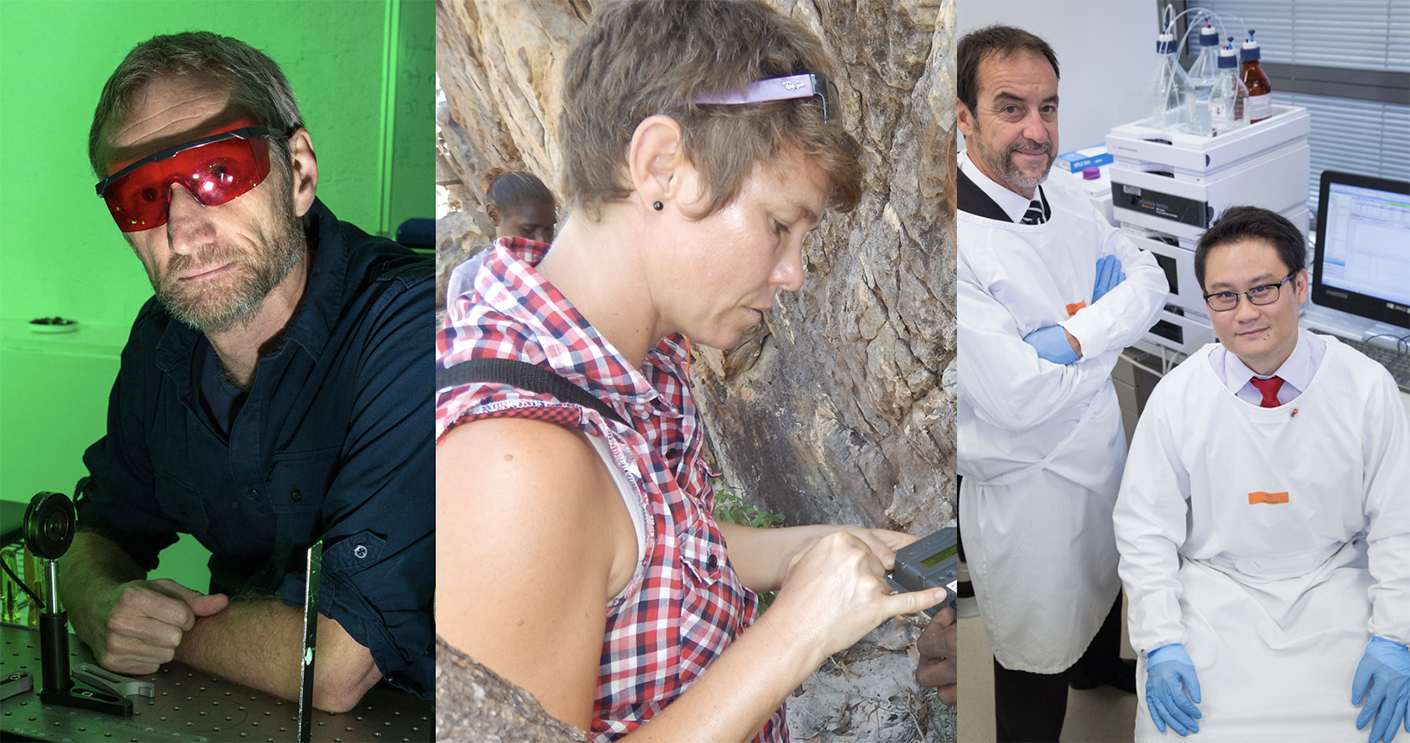Three Macquarie-led research projects have been announced as finalists in the 2017 Australian Museum Eureka prizes, recognising the work of academics Associate Professor Rich Mildren, Dr Emilie Ens, Professor Gilles Guillemin and Dr Edwin Lim.
The Eureka prizes reward excellence in the fields of research and innovation, leadership, science engagement and school science.
Finalist Associate Professor Rich Mildren from the Department of Physics and Astronomy has led the development of a super laser, which is now in the running for a Eureka prize for Outstanding Science in safeguarding Australia.
The laser uses a new approach using diamond technology to radically extend laser power and wavelength. Applications of the laser could transform the defence of Australia against modern threats from drones, boat swarms and low-cost missiles. Other applications for the laser may be found in quantum science and biomedicine, and even in cleaning up space junk.
A project developing tools for cross-cultural biodiversity assessments, led by Dr Emilie Ens from the Department of Environmental Sciences, has also been named as a finalist in the Innovation in Citizen Science category.
The project facilitates the exchange of information between Arnhem Land Aboriginal communities and Western science to observe, identify and record flora and fauna, with the data being analysed and communicated using cutting-edge digital techniques. The project will see the discovery of new species, new populations of threatened species, and the maintaining of traditional languages.
Professor Gilles Guillemin and Dr Edwin Lim, both from the Department of Biomedical Sciences, have led an international team to the discovery of a biomarker for the prognosis of multiple sclerosis (MS). They have been named as finalists in the category for Innovation in Medical Research.
MS is a debilitating disorder of the central nervous system that affects more than 23 000 Australians, and 2.3 million people worldwide. While following the course of the disease has traditionally proved problematic and lengthy, requiring patients to undergo an array of expensive tests, the new results show that a blood test could greatly simplify and speed up this process.


 Back to homepage
Back to homepage
Excellent result. Congratulations to all nominees!